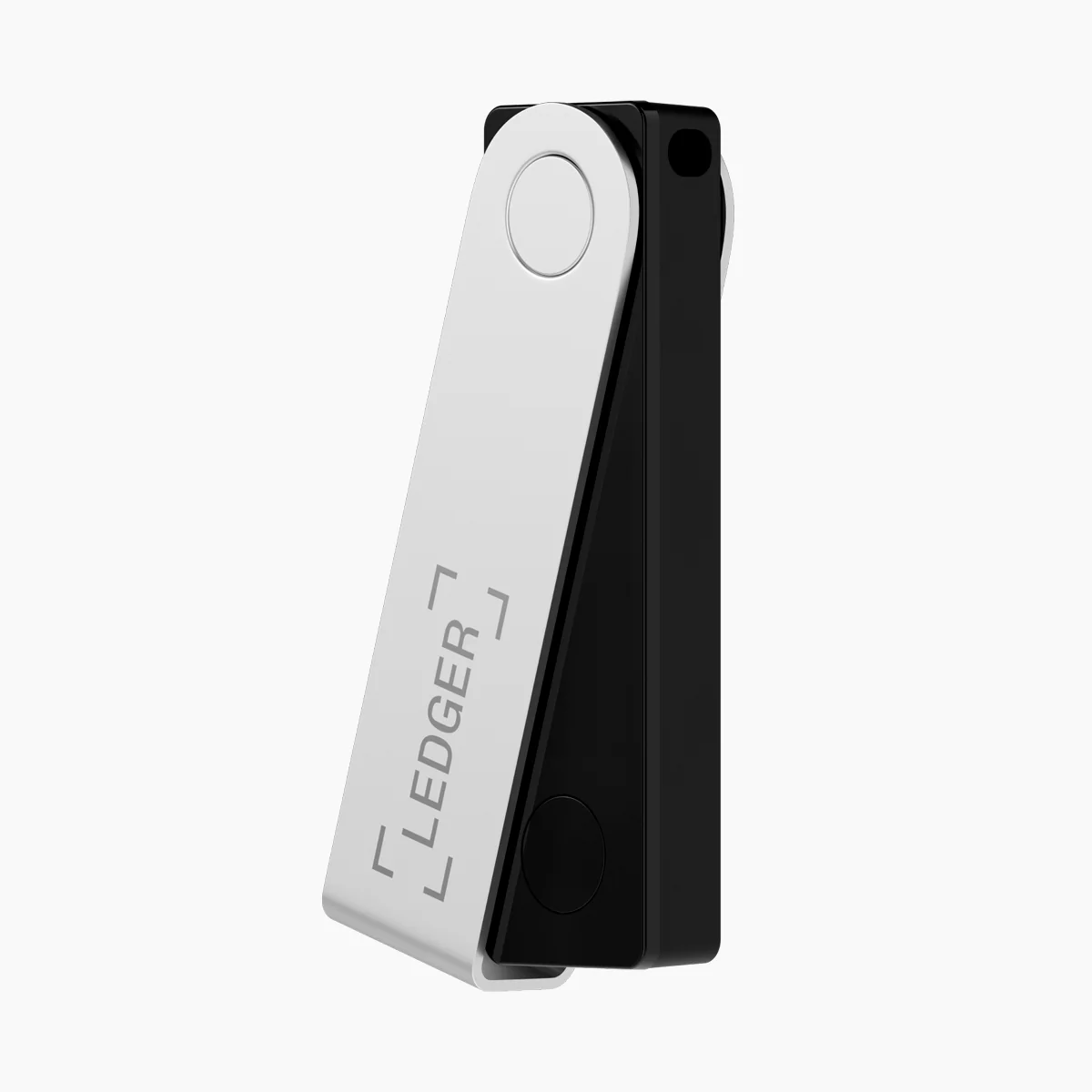Custody & Trading Fundamentals
Everything you need to know to keep your cryptocurrency safely stored and the basics of trading
Keys & Phrases
When dealing with cryptocurrencies, understanding the fundamentals of seeds and phrases is crucial. At the heart of this are public keys, private keys, and seed phrases, which are the building blocks of crypto security. A public key is like an account number that you can share with others to receive funds. It is derived from your private key, which is a secret code that gives you access to your cryptocurrency. The private key must remain confidential, as anyone with access to it can control the funds in the associated wallet.
A seed phrase, often a set of 12 or 24 randomly generated words, acts as a backup for your private key. This phrase is crucial when setting up a non-custodial wallet, which is a wallet where only you have control over your private keys. If you lose access to your wallet, the seed phrase is the only way to recover it. However, if you lose your seed phrase, there is no way to retrieve your coins or tokens, making it imperative to store it securely. In essence, understanding and managing these elements correctly is fundamental to safeguarding your cryptocurrency.

Keys & Phrases

When dealing with cryptocurrencies, understanding the fundamentals of seeds and phrases is crucial. At the heart of this are public keys, private keys, and seed phrases, which are the building blocks of crypto security. A public key is like an account number that you can share with others to receive funds. It is derived from your private key, which is a secret code that gives you access to your cryptocurrency. The private key must remain confidential, as anyone with access to it can control the funds in the associated wallet.
A seed phrase, often a set of 12 or 24 randomly generated words, acts as a backup for your private key. This phrase is crucial when setting up a non-custodial wallet, which is a wallet where only you have control over your private keys. If you lose access to your wallet, the seed phrase is the only way to recover it. However, if you lose your seed phrase, there is no way to retrieve your coins or tokens, making it imperative to store it securely. In essence, understanding and managing these elements correctly is fundamental to safeguarding your cryptocurrency.
Wallets

A cryptocurrency wallet is a tool that stores your private keys, enabling you to interact with blockchain networks. While wallets don’t store actual cryptocurrencies, they hold the keys that grant access to your assets on the blockchain. There are different types of wallets, each with varying levels of security and convenience. Software wallets are applications on your computer or mobile device, ideal for frequent transactions and trading due to their ease of use. However, their constant internet connection makes them more susceptible to hacking, requiring strong security measures.
Hardware wallets, on the other hand, store your private keys offline, providing enhanced security for long-term storage of large amounts of cryptocurrency. Although more secure, they are less convenient for quick transactions. Wallets are also divided into custodial and non-custodial types. Custodial wallets are managed by third parties, like exchanges, which hold your private keys for you, offering convenience but requiring trust in the custodian. Non-custodial wallets give you full control over your private keys, providing greater security and privacy but necessitating careful management of your keys and seed phrases. The choice depends on your needs, experience, and comfort with managing your own security.
Wallets

A cryptocurrency wallet is a tool that stores your private keys, enabling you to interact with blockchain networks. While wallets don’t store actual cryptocurrencies, they hold the keys that grant access to your assets on the blockchain. There are different types of wallets, each with varying levels of security and convenience. Software wallets are applications on your computer or mobile device, ideal for frequent transactions and trading due to their ease of use. However, their constant internet connection makes them more susceptible to hacking, requiring strong security measures.
Hardware wallets, on the other hand, store your private keys offline, providing enhanced security for long-term storage of large amounts of cryptocurrency. Although more secure, they are less convenient for quick transactions. Wallets are also divided into custodial and non-custodial types. Custodial wallets are managed by third parties, like exchanges, which hold your private keys for you, offering convenience but requiring trust in the custodian. Non-custodial wallets give you full control over your private keys, providing greater security and privacy but necessitating careful management of your keys and seed phrases. The choice depends on your needs, experience, and comfort with managing your own security.
DEX & CEX
Decentralized exchanges (DEXs) and centralized exchanges (CEXs) are the two primary platforms for trading cryptocurrencies, each with distinct features and trade-offs. DEXs, such as Uniswap and SushiSwap, operate without a central authority, enabling peer-to-peer trading directly on the blockchain. These platforms prioritize decentralization and privacy, as users maintain control of their private keys and funds throughout the transaction process. However, DEXs often face challenges related to liquidity, as the volume of assets available for trading can be limited, potentially leading to higher price slippage and slower transactions.
CEXs, like Binance and Coinbase, offer a more traditional trading experience, with centralized control and oversight. These platforms are typically easier to use, provide higher liquidity, and offer a broader range of trading pairs, making them appealing for both beginners and experienced traders. However, CEXs require users to trust the exchange with their private keys, meaning that you don’t have full control over your assets while they are held on the exchange. To address concerns about asset security, many CEXs have introduced Proof of Reserves, a transparency measure to show that they hold sufficient assets to cover user deposits, reducing the risk of insolvency similar to a fractional reserve banking system.

DEX & CEX

Decentralized exchanges (DEXs) and centralized exchanges (CEXs) are the two primary platforms for trading cryptocurrencies, each with distinct features and trade-offs. DEXs, such as Uniswap and SushiSwap, operate without a central authority, enabling peer-to-peer trading directly on the blockchain. These platforms prioritize decentralization and privacy, as users maintain control of their private keys and funds throughout the transaction process. However, DEXs often face challenges related to liquidity, as the volume of assets available for trading can be limited, potentially leading to higher price slippage and slower transactions.
CEXs, like Binance and Coinbase, offer a more traditional trading experience, with centralized control and oversight. These platforms are typically easier to use, provide higher liquidity, and offer a broader range of trading pairs, making them appealing for both beginners and experienced traders. However, CEXs require users to trust the exchange with their private keys, meaning that you don’t have full control over your assets while they are held on the exchange. To address concerns about asset security, many CEXs have introduced Proof of Reserves, a transparency measure to show that they hold sufficient assets to cover user deposits, reducing the risk of insolvency similar to a fractional reserve banking system.
Trading Strategies

For those looking to engage in cryptocurrency trading, it is essential to understand the different strategies available, though it is important to note that we do not advocate trading or offer financial advice. One popular strategy is HODL, which stands for “Hold On for Dear Life.” This approach involves buying and holding cryptocurrencies for an extended period, based on the belief that their value will increase over time. Another strategy is swing trading, where traders buy and sell cryptocurrencies based on short- to medium-term price movements, aiming to profit from market swings.
Day trading is a more intense strategy, involving buying and selling within a single day to capitalize on small price fluctuations. This approach requires constant monitoring of the markets and a deep understanding of technical analysis (TA), which involves studying price charts to predict future movements. Some of the most common TA indicators include Moving Averages (MA), Relative Strength Index (RSI), and Bollinger Bands. These tools help traders identify trends and potential entry or exit points in the market, though they are not foolproof and carry significant risks.
Trading Strategies

For those looking to engage in cryptocurrency trading, it is essential to understand the different strategies available, though it is important to note that we do not advocate trading or offer financial advice. One popular strategy is HODL, which stands for “Hold On for Dear Life.” This approach involves buying and holding cryptocurrencies for an extended period, based on the belief that their value will increase over time. Another strategy is swing trading, where traders buy and sell cryptocurrencies based on short- to medium-term price movements, aiming to profit from market swings.
Day trading is a more intense strategy, involving buying and selling within a single day to capitalize on small price fluctuations. This approach requires constant monitoring of the markets and a deep understanding of technical analysis (TA), which involves studying price charts to predict future movements. Some of the most common TA indicators include Moving Averages (MA), Relative Strength Index (RSI), and Bollinger Bands. These tools help traders identify trends and potential entry or exit points in the market, though they are not foolproof and carry significant risks.
Trading Risks & Research
Trading cryptocurrencies comes with high risks, including the potential to lose a significant amount of money. Even seemingly safe investments can fail, as illustrated by the collapse of Terra Luna’s UST stablecoin, which was supposed to maintain a stable value of $1 but ultimately failed, leading to massive losses for investors. This highlights the importance of thorough research before engaging in any trading activity.
When researching a cryptocurrency project, start by examining the team behind it, as a strong, transparent, and experienced team is often a good indicator of a project’s potential. Review the project’s whitepaper, which outlines its goals, technology, and roadmap, providing insight into its legitimacy and viability. Additionally, websites like CoinMarketCap and CoinGecko are excellent resources for gathering data on cryptocurrency prices, market caps, and project information. By conducting diligent research, you can better understand the risks and make more informed decisions in the volatile world of cryptocurrency trading.

Trading Risks & Research

Trading cryptocurrencies comes with high risks, including the potential to lose a significant amount of money. Even seemingly safe investments can fail, as illustrated by the collapse of Terra Luna’s UST stablecoin, which was supposed to maintain a stable value of $1 but ultimately failed, leading to massive losses for investors. This highlights the importance of thorough research before engaging in any trading activity.
When researching a cryptocurrency project, start by examining the team behind it, as a strong, transparent, and experienced team is often a good indicator of a project’s potential. Review the project’s whitepaper, which outlines its goals, technology, and roadmap, providing insight into its legitimacy and viability. Additionally, websites like CoinMarketCap and CoinGecko are excellent resources for gathering data on cryptocurrency prices, market caps, and project information. By conducting diligent research, you can better understand the risks and make more informed decisions in the volatile world of cryptocurrency trading.
Influentials

Will Clemente
Will Clemente is an influential on-chain analyst and co-founder of Reflexivity Research, specializing in Bitcoin market trends and blockchain data. Known for his data-driven insights, Clemente offers valuable perspectives on investor behavior and Bitcoin's network health.

Willy Woo
Willy Woo is a renowned Bitcoin on-chain analyst and market commentator, known for his innovative models and indicators that predict Bitcoin price trends. His expertise in blockchain data analysis makes him a key figure in understanding market cycles.

Tone Vays
Tone Vays is a former Wall Street trader and Bitcoin analyst, recognized for his technical analysis and market trading strategies. Through his YouTube channel and public commentary, Vays provides critical insights and advocacy for Bitcoin.
Influentials

Will Clemente
Will Clemente is an influential on-chain analyst and co-founder of Reflexivity Research, specializing in Bitcoin market trends and blockchain data. Known for his data-driven insights, Clemente offers valuable perspectives on investor behavior and Bitcoin's network health.

Willy Woo
Willy Woo is a renowned Bitcoin on-chain analyst and market commentator, known for his innovative models and indicators that predict Bitcoin price trends. His expertise in blockchain data analysis makes him a key figure in understanding market cycles.

Tone Vays
Tone Vays is a former Wall Street trader and Bitcoin analyst, recognized for his technical analysis and market trading strategies. Through his YouTube channel and public commentary, Vays provides critical insights and advocacy for Bitcoin.
Recommended Hardware Wallets

Tangem Wallet
Tangem Wallet, a sleek, card-shaped hardware wallet offering the highest level of security and convenience with NFC technology for easy, tap-to-transact functionality. Buy with a discount through our affiliate link:

Ledger Nano X
Ledger Nano X provides advanced protection with Bluetooth connectivity, allowing you to manage your cryptocurrencies with a larger screen and more storage. Buy a wallet below and receive up to 20$ of Bitcoin as a gift:
Recommended Hardware Wallets

Tangem Wallet
Tangem Wallet, a sleek, card-shaped hardware wallet offering the highest level of security and convenience with NFC technology for easy, tap-to-transact functionality. Buy with a discount through our affiliate link:

Ledger Nano X
Ledger Nano X provides advanced protection with Bluetooth connectivity, allowing you to manage your cryptocurrencies with a larger screen and more storage. Buy a wallet below and receive up to 20$ of Bitcoin as a gift:
Recommended 2 Read

Trading in the Zone
“Trading in the Zone” by Mark Douglas is a groundbreaking book that addresses the psychological aspects of trading, offering insights into the mindset required for consistent success in the markets. Douglas explores the common mental barriers that traders face, such as fear, overconfidence, and inconsistency, and provides practical strategies to overcome these challenges. The book emphasizes the importance of developing a disciplined and objective approach to trading, helping readers build the confidence and mental resilience necessary to navigate the volatility of financial markets. “Trading in the Zone” is a must-read for traders of all levels who are looking to improve their psychological edge and achieve greater success in their trading endeavors.
Recommended 2 Read

Trading in the Zone
“Trading in the Zone” by Mark Douglas is a groundbreaking book that addresses the psychological aspects of trading, offering insights into the mindset required for consistent success in the markets. Douglas explores the common mental barriers that traders face, such as fear, overconfidence, and inconsistency, and provides practical strategies to overcome these challenges. The book emphasizes the importance of developing a disciplined and objective approach to trading, helping readers build the confidence and mental resilience necessary to navigate the volatility of financial markets. “Trading in the Zone” is a must-read for traders of all levels who are looking to improve their psychological edge and achieve greater success in their trading endeavors.
Support us in our mission
The best way to support our mission is to ‘Learn and Tell’ about decentralization. To help us improve our website you can buy the recommend books through affiliate links, watch our content on YouTube or donate Bitcoin on our Lightning wallet address. Learn more below!
Contact us!
Any recommendations about our website, or questions about decentralization or the content provided? Do not hesitate to contact us! You can drop us a message on the contact page or drop us an email at: info@r2decentralization.com